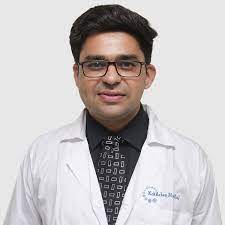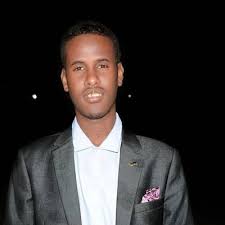Scientific Program
Keynote Session:
Oral Session 1:
- Evidence Based Clinical Practice | Public Health Nursing | Cancer and Mental Health Nursing
Title: Healthcare Reform to Tackle the Challenges Facing Nursing and Education in the Advanced Healthcare Infrastructure
Biography:
Raphael Louis, (Certified Global Healthcare Reform Expert), is the Founder, Chairman, President & Chief Executive Officer (CEO) of The Federal Association for the Advancement of Visible Minorities (FAAVM), whereas a NFP Corporation including activities such as the FAAVM Socio Economic Development Council (SEDC), which plays a vital portion in the overall mission realization of the organization. He is also Founder/Leader of the National Coalition Party of Canada (NCPC) and believes that most Canadians who are in the slightest degree politically active are inclined to hold one of the two chief political positions common in this country, what we call conservatism or liberalism, thus politically, Canadians are highly divided. Raphael political vision when it comes to issues of finance, immigration, public health, national security, diplomacy, human rights, international trade, foreign direct investment (FDI) and environmental protection, is that government must represent Canadian interests first
Abstract:
As Health care reform is for the most part governmental policy that affects health care delivery in a given place. Health care reform typically attempts to: Broaden the population that receives health care coverage through either public sector insurance programs or private sector insurance companies. Canada has a decentralized, universal, publicly funded health system called Canadian Medicare. Health care is funded and administered primarily by the country’s13 provinces and territories. Each has its own insurance plan, and each receives cash assistance from the federal government on a per-capita basis. Benefits and delivery approaches vary. All citizens and permanent residents, however, receive medically necessary hospital and physician services free at the point of use. To pay for excluded services, including outpatient prescription drugs and dental care, provinces and territories provide some coverage for targeted groups. In addition, about two-thirds of Canadians have private insurance.
Title: C-Reactive Protein And Procalcitonin As Biomarker Of Sepsis After Congenital Heart Surgery
Biography:
Dhaval Darji , has completed his study in Pediatrics in the year 2014 from the international recognised board, New Delhi (Diplomate National Board) . He has finished his fellowship in PICU from India’s one of the largest children hospital (Wadia children Hosptial Mumbai ). After that he has been trained in pediatric cardiac ICU from one of the top Corporate hospital in Mumbai . He has special love for kids and has specific passion for management of pediatric opd patients as well as pediatric critical patients. He has won 1st rank in poster presentation in PCSI 2018. He has done multiple studies e.g. Neonatal hypoglycaemia and it’s complication , Role CRP and Procalcitonin as biomarkers after congenital open heart surgery which were about to present in national as well as international journals. He is speaker in many national & international conferences. His educational achievements : MBBS , DNB Pediatrics , fellowship in PICU , fellowship in PCICU Multiple Studies and article presentations in journals.
Abstract:
After congenital heart surgery (CHS), Cardiopulmonary bypass (CPB), Delayed sternal closure and Low cardiac output due to ventricular dysfunction in immediate post operatively period can cause systemic inflammatory response syndrome (SIRS) which is difficult to differentiate from proven post operative infection. C – Reactive Protein (CRP) and Procalcitonin (PCT) are potential early biomarkers not only diagnose sepsis but also guide the need for empirical antibiotic therapy and duration of antibiotics.
Title: East Africa Medical Nursing Education Challenges and their solution Review
Biography:
Hamze Suleiman H. Nour is a College of Veterinary Medicine, Agriculture, and Animal Science, Department Veterinary Medicine, Hargeisa University, Ministry of Livestock and Fishier Development, Department of Planning, Hargeisa, Somaliland
Abstract:
In most Africa occurred wars that related with colonial independence wars and after that there were conflict wars, so the nursing development in Africa has involved through tree cardinal periods, namely precolonial, colonial and the post-colonial periods in most African Countries except in Ethiopia. The nursing care took from the experimental practice and experience since that the nursing in Africa develop and reached in area where there is no available in medical services the experience gained from sick and wounded, especially in African countries where inter and intra tribal wars frequently occurs. However, like in Europe and rest of the world, the Africa, not much is known about nursing. Since that the training of nurses and midwives in Africa was established and regulated by the Nursing and Midwives in Some Africa organizations, some of three African countries took cognizance of the National Policy on Education in developing sound educational principles essential to the preparation of nurses to function to improve the Nursing and midwives in Africa to cover health services in Africa. So, after developed and ensure that policies, programs and activities were developed and implement to achieve with the goal of promoting a maintaining excellence in nursing education and practices as provided in conformity with local and international standards. Some African countries like Ethiopia Nursing education is controlled by the Health Professional Council of which Ethiopia Nursing association is the member under the ministry of health. So, the ministries of health get important Nursing and midwives, they prepared to be part of educational system in the higher education such as Universities, the University education is the key to the growth profession and nursing education programs in many parts of the world and some parts of the African Countries. So, the professional Nursing and midwives offered at universities and colleges affiliated to universities. The universities and colleges offered by the teaching / learning in the profession in combination of theoretical, clinical and internship issues premised. To cover health status in Africa. In Conclusion in Africa there is suffering and terroirs and tribal conflicts and wars, in contrast to that the health services in Africa were poor and there is enough medical Nursing and Midwives in Africa.
Title: Perceptions regarding Hepatitis B and C diseases, and their Risk Factors among Ward Boys Working in Tertiary Care Hospitals of Islamabad.
Biography:
Muhammad Abdullah is a medical nursing student at Aga Khan university, Pakistan
Abstract:
Hepatitis is a serious public health issue of present era. According to World Health Organization Hepatitis virus is responsible for disease of liver. As per WHO more than 2 billion populations are suffering with Hepatitis infection, 620000 deaths related to HBV annually. WHO shows, 36 million healthcare professionals globally, 3 million get injury from sharps, resulting 2 million subjects being infected with HBV and 1 million with HCV annually. A systematic study of 2015 showed HCV seroprevalence in adult population of Pakistan was 6.8% whereas individuals infected with HCV were 6%.





